Small-scale gatherings may be under strain but event attendance is soaring – and these events are also getting grander in scale as folk search for meaningful experiences that standout in their lives.
Yet, these happenings are not as unforgettable for the environment as they are for attendees. Just consider the mountains of waste that are left after Glastonbury, which is enjoyed by over 200,000 people but said to disperse over 2000 tonnes of rubbish. Discarded tents, cans of booze, sleeping bags, all sorts of plastic and other detritus…
That’s a popular example but business events can also cause other hidden impacts. If participants are flying in on private jets and eating food that’s imported from distant continents in containers that are difficult to recycle then the CO2 emissions and waste are considerable, regardless of what’s being discussed.
So surely it’s time for the events we attend to up their sustainability game?
Of course but how!? Well, Legacy is one of the few companies that can empower just that and we interviewed Iga Fongenie, Head of Sustainable Events, to dig deeper. Let’s get to it…
First things first. Tell us a little about Legacy’s mission.
At Legacy, we believe that sustainability should never be an afterthought, it should be the foundation of every successful event. Our mission is to make sustainable practices intrinsic to event design and delivery, proving that you don’t need to compromise on quality or creativity to reduce environmental impact.
We do this in three ways: by showcasing what’s possible through the events we produce; by empowering others with tools like our sustainable sourcing platform; and by offering expert consultancy, training, and measurement services that help organizations improve and get recognized for their efforts.
Our approach is guided by nine key themes from carbon and transport to wellbeing and community ensuring that every decision we make contributes to a more responsible, inclusive, and innovative event experience. At our core, Legacy is about using events as a force for good inspiring change, setting new standards, and helping the industry evolve toward a more sustainable future.
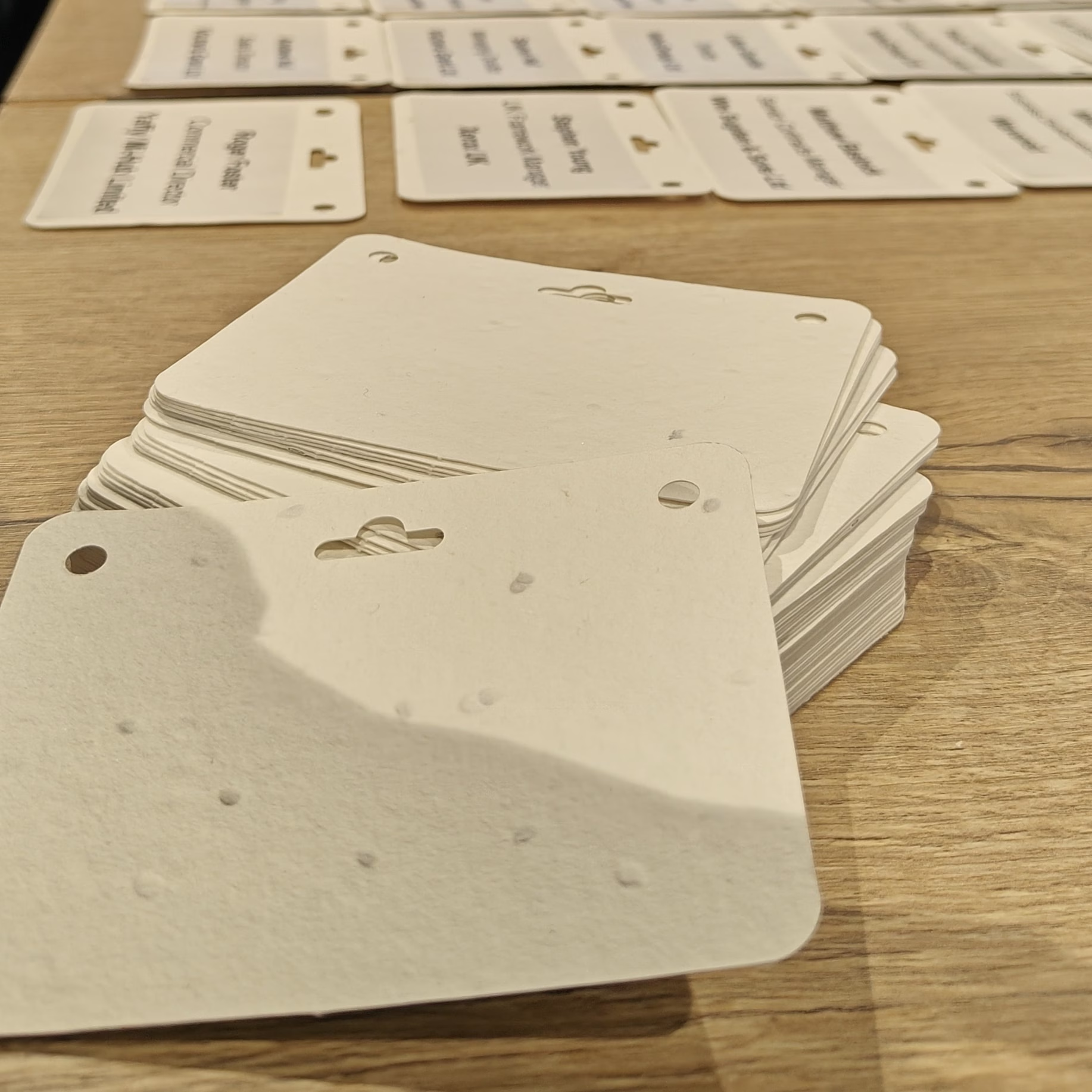
Where do you think awareness around the environmental impact of events is right now?
Awareness of the environmental impact of events is on the rise, suppliers and organisers alike increasingly acknowledge that events can be incredibly wasteful, and that sustainability is no longer a niche concern but a pressing industry issue. However, there’s still a noticeable gap between recognising the problem and taking meaningful, consistent action.
A recent survey by Cvent shows that while many professionals rate sustainability as a top priority, fewer than half have clear goals or action plans in place. A major barrier is the lack of sustainability expertise or resources embedded within organisations. Too often, responsibility falls to a single person or is treated as an add-on.
At Legacy, we believe this approach needs to change. Sustainability shouldn’t sit on the sidelines, it should be embedded across every role, much like data protection or health and safety. Events have a unique power to influence public behaviour and by leading by example we can show that sustainable practices are not only possible but essential. We’re committed to helping the industry move from awareness to action by equipping teams with the tools, knowledge, and mindset to make sustainability a default, not an afterthought.
So run us through a recent example of a major event and how you managed to make it more sustainable…
One of our recent standout events was held at the Blavatnik School of Government in Oxford, a prime example of how sustainability can be integrated throughout every aspect of event planning and delivery.
We chose the venue for its exceptional energy efficiency credentials, including solar panels, ground source heat pumps, and natural ventilation. By selecting these systems and using suppliers who operate on renewable energy we were able to reduce the event’s carbon footprint.
Materials and waste were a key focus. We avoided typical single-use items like printed banners and decorative elements, opting instead for reusable paper lanyards, digital signage, and creative use of lighting and sound to set the atmosphere. By replacing print-heavy materials with digital alternatives and thoughtful design, we significantly reduced waste. Clear waste segregation systems, including recycling and composting stations, were in place throughout the venue. Our suppliers also supported these efforts by repurposing unused materials and choosing recyclable or compostable options wherever possible.
We worked with the caterers to curate a locally sourced, plant-based menu, minimising transport emissions and food waste. Messaging around food choices helped raise awareness among attendees about their environmental impact.
Transport emissions were reduced by choosing an accessible venue and promoting public transport, walking, and cycling options. We managed to have 73.4% or attendees walk, cycle or use public transport instead of a car. We also worked with local suppliers to cut down on travel-related emissions.
Water conservation and biodiversity were not overlooked the venue’s rainwater harvesting system and green roof supported both, and we extended those efforts with native plants in our event decor.
This event is a clear example of how, with the right planning and partners, even a large-scale event can be low-impact, community-focused, and a force for positive environmental change.
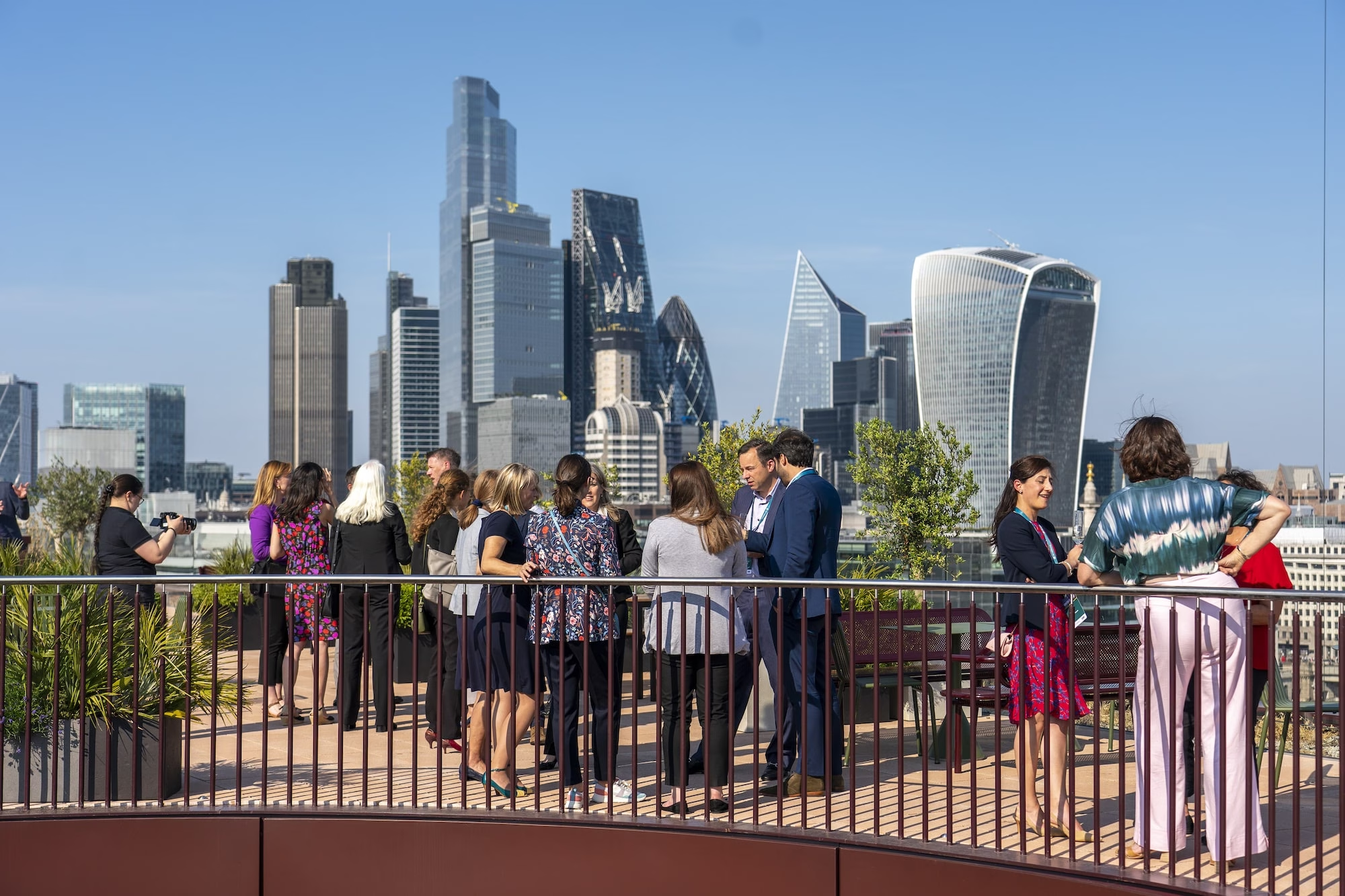
Impressive! Do you have any exciting events coming up that you could give us a sneak peek into!?
Absolutely, one event we’re especially excited about is a summer party we’re planning at the Birmingham Botanical Gardens. It’s set to be a vibrant, mini-festival-style gathering for a brilliant group of professional ecologists, a community that shares Legacy’s core values around sustainability and biodiversity.
The venue itself is a perfect fit: surrounded by diverse plant life and conservation-led landscaping, it naturally connects with our focus on ecology and environmental impact. It also provides an inspiring setting to celebrate and connect over shared goals.
We’re planning an interactive, festival-style experience complete with food trucks, a live band, and playful theming all delivered with sustainability at the forefront. And that’s before you consider the audience that that already “gets it.” There’s no need to convince anyone of the value of eco-conscious choices, whether environmental or social, they’re fully on board, making it a joy to design something meaningful and fun in equal measure.
You must have to work with a vast number of partners to make a major event happen. Do you have any criteria that you use when selecting partners, to make sure that the event is sustainable throughout its supply chain?
Absolutely. As a certified B-Corp, transparency is central to how we operate including where and how we spend our money. That’s why we conduct a written sustainability assessment for each supplier we work with, evaluating them against our nine sustainability themes: Energy & Carbon, Materials, Food & Drink, Wellbeing, Water, Transport, Community, Innovation, and Ecology.
A key factor in our selection process is making sure that suppliers are as local as possible. By doing this, we significantly reduce emissions related to transport while supporting the local economy. We understand that not every supplier can excel in all nine areas – and that’s okay. Our role is not only to assess but also to support. If a supplier or venue isn’t quite there yet, we offer tailored advice and guidance to help them improve. It’s a collaborative process, and we see it as an opportunity to raise standards across the industry by working together, rather than gatekeeping.
As the climate heats up, we’re also experiencing a parallel crisis with biodiversity loss. Is this something you factor into your events, as well as reducing emissions?
Absolutely. At Legacy, we recognize that the climate crisis and biodiversity loss are two sides to the same coin, and both are crucial areas of focus for us. While we are dedicated to reducing emissions through our sustainable event practices, we also aim to make a positive impact on biodiversity. This includes incorporating native plants into our event decor, choosing venues with green infrastructure that supports local ecosystems, and collaborating with suppliers who share our commitment to biodiversity conservation. By integrating these efforts, we hope to not only reduce our environmental footprint but also actively contribute to preserving and enhancing biodiversity.
In fact, we are currently working on a side project focused on biodiversity, exploring ways to leave a lasting, positive legacy in every venue we partner with.
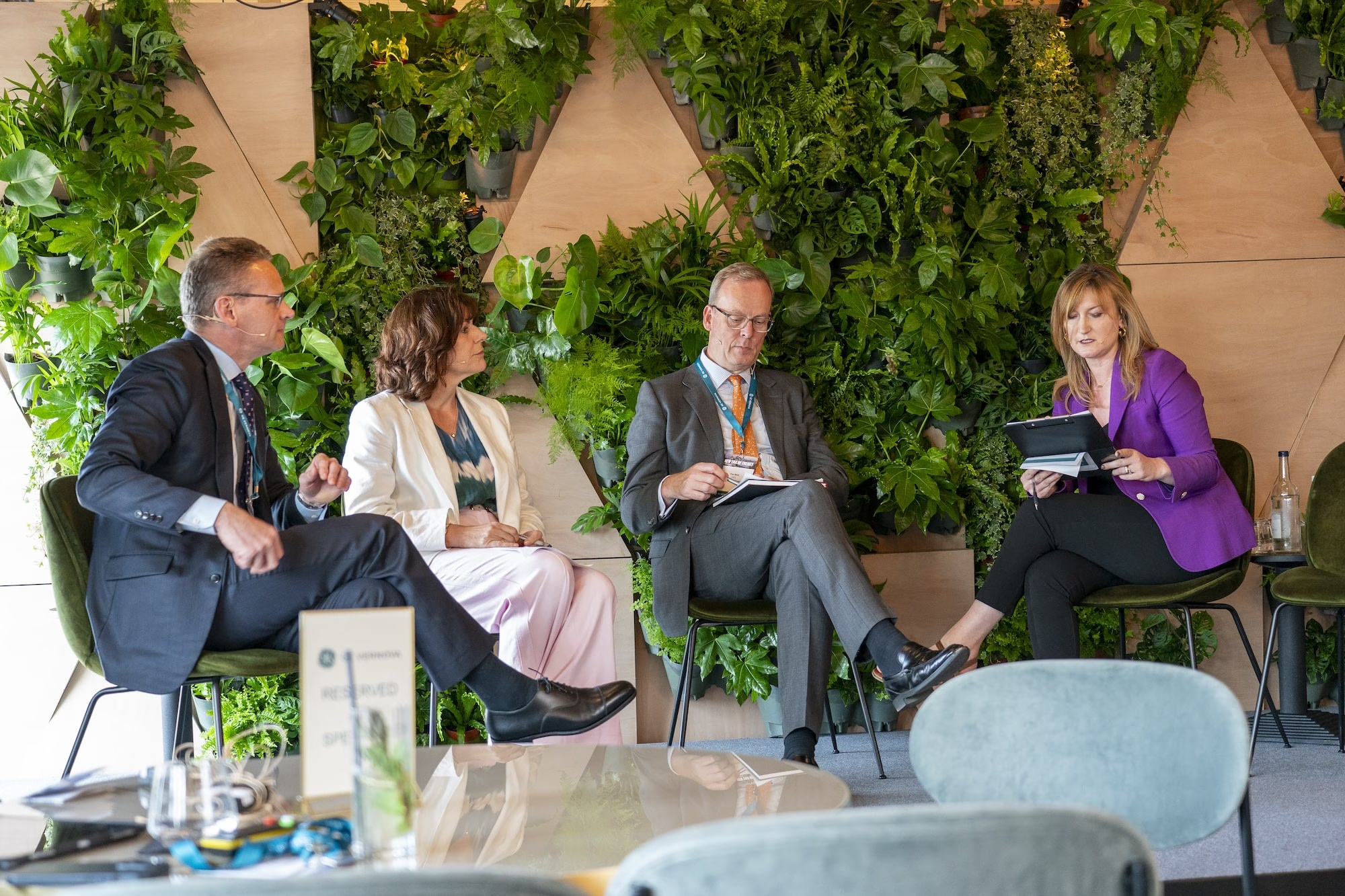
Buyers are looking to certifications and labels to help them make sustainable choices. How important are these at Legacy’s events and do you have plans to incorporate more in the future?
At Legacy, we see certifications and labels as helpful tools, but not the whole picture. While they can offer a quick indication of a supplier’s or venue’s sustainability credentials, we put more emphasis on what people are actually doing in practice.
For example, many Nordic venues we’ve worked with don’t have formal sustainability policies or certifications, and yet when we dig into our nine sustainability themes, we discover they’re doing all the right things from using renewable energy to designing for natural light and ventilation, reducing food waste, and managing materials responsibly. For them, it’s just common sense, not something they’ve felt the need to badge.
Similarly, smaller independent suppliers often can’t afford the cost of certifications, but that doesn’t mean their work isn’t sustainable. In fact, many of them go above and beyond because it’s core to their values. That’s why our approach is to assess sustainability through conversation, experience, and observation not just paperwork. We’ll always stay open to integrating certifications where they add value but we’ll never rely on them alone to define what “sustainable” means.
 Sustainability can be a tricky concept to pin down but we always ask our interviewees to make an attempt. How would you define ‘sustainability’?
Sustainability can be a tricky concept to pin down but we always ask our interviewees to make an attempt. How would you define ‘sustainability’?
For us at Legacy, sustainability means making decisions today that support the wellbeing of people and the planet without compromising the ability of future generations to do the same. It’s about balance, responsibility, and long-term thinking.
In the context of events, that means designing experiences that minimize environmental harm, support local communities and economies, and consider the social impact of every choice from energy use and transport to food sourcing and accessibility. True sustainability isn’t just a checklist or a trend it’s a mindset that every stage of planning and delivery should emerge from, so it becomes the default, not the exception.
Could you tell us about some of the most exciting sustainable brands or businesses that you’re following at the moment – in events or otherwise?
Legacy has supported two exciting brands from the beginning – Loaf Pottery (part of Now Group) and Gomi – and they’re both going from strength to strength. Gomi, based in Brighton, design striking, functional products from waste materials, and their latest project is a great example: turning NHS textile waste into limited-edition tote bags. It’s a brilliant circular solution with both environmental and social impact, and we love how they approach design with such creativity and transparency.
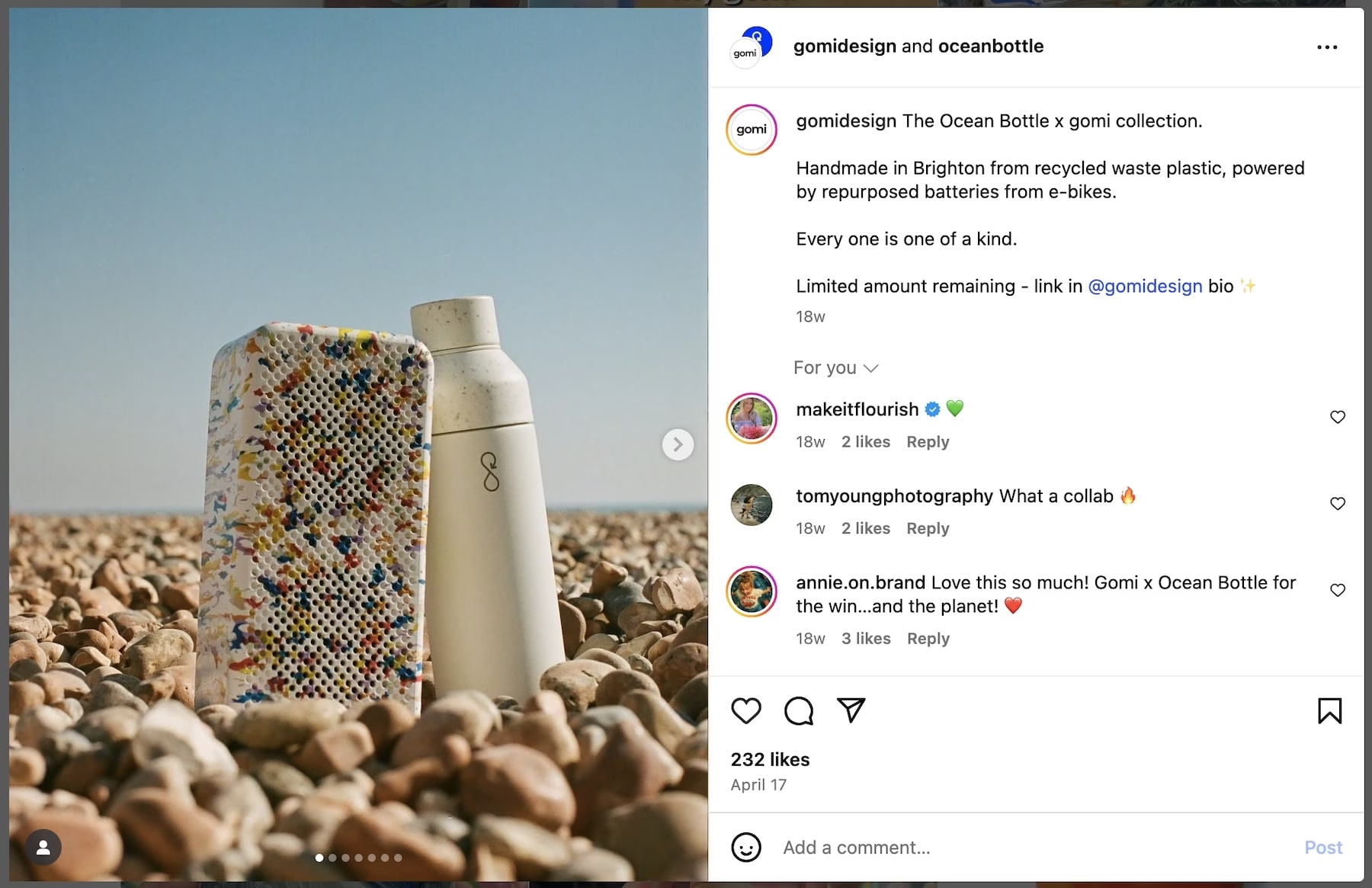
We’ve also worked with NOW Group in Northern Ireland, who run a number of social enterprises including Loaf Pottery, which produces beautiful handmade ceramics while creating training and jobs for people with learning difficulties and autism. Their JAM Card short for “Just A Minute” is a small but powerful tool that’s making customer experiences more inclusive, including at events. We’ve been proud to champion Gomi and Loaf pottery through our Legacy Marketplace, connecting their work with customers who care about sustainability and innovation.
Final thing: Where would you like Legacy to be a year from now?
We are really aware of the fact that we champion events as being important, even though events use precious resources. A year from now, I want Legacy to have resolved this tension by becoming leaders in strategic and responsible experience design.
We already excel at efficient event logistics and making events run seamlessly. I want us to be able to demonstrate, with data, that our events don’t just use resources, they multiply impact. That every dollar spent, every hour of someone’s time, every gram of carbon generated creates exponentially greater value through the connections formed, decisions catalysed, and movements built. Instead of relying solely on experience and intuition, we’ll use behavioural insights to design experiences that stick with people months and years later, creating genuine transformation rather than just memorable moments.
Are you keen to learn more about sustainable events, or perhaps even entrust some experts to get your event at the vanguard of sustainability shindigs? Then find out more on Legacy’s website.

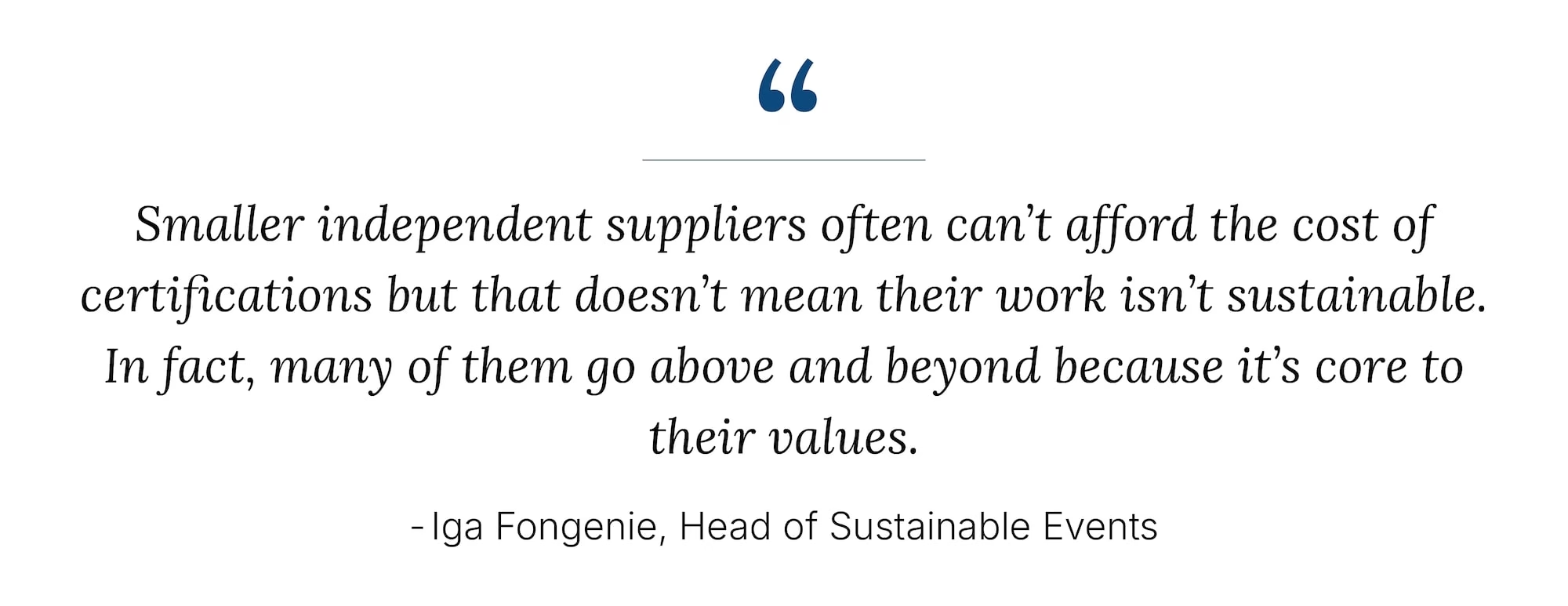 Sustainability can be a tricky concept to pin down but we always ask our interviewees to make an attempt. How would you define ‘sustainability’?
Sustainability can be a tricky concept to pin down but we always ask our interviewees to make an attempt. How would you define ‘sustainability’?

Leave a Reply